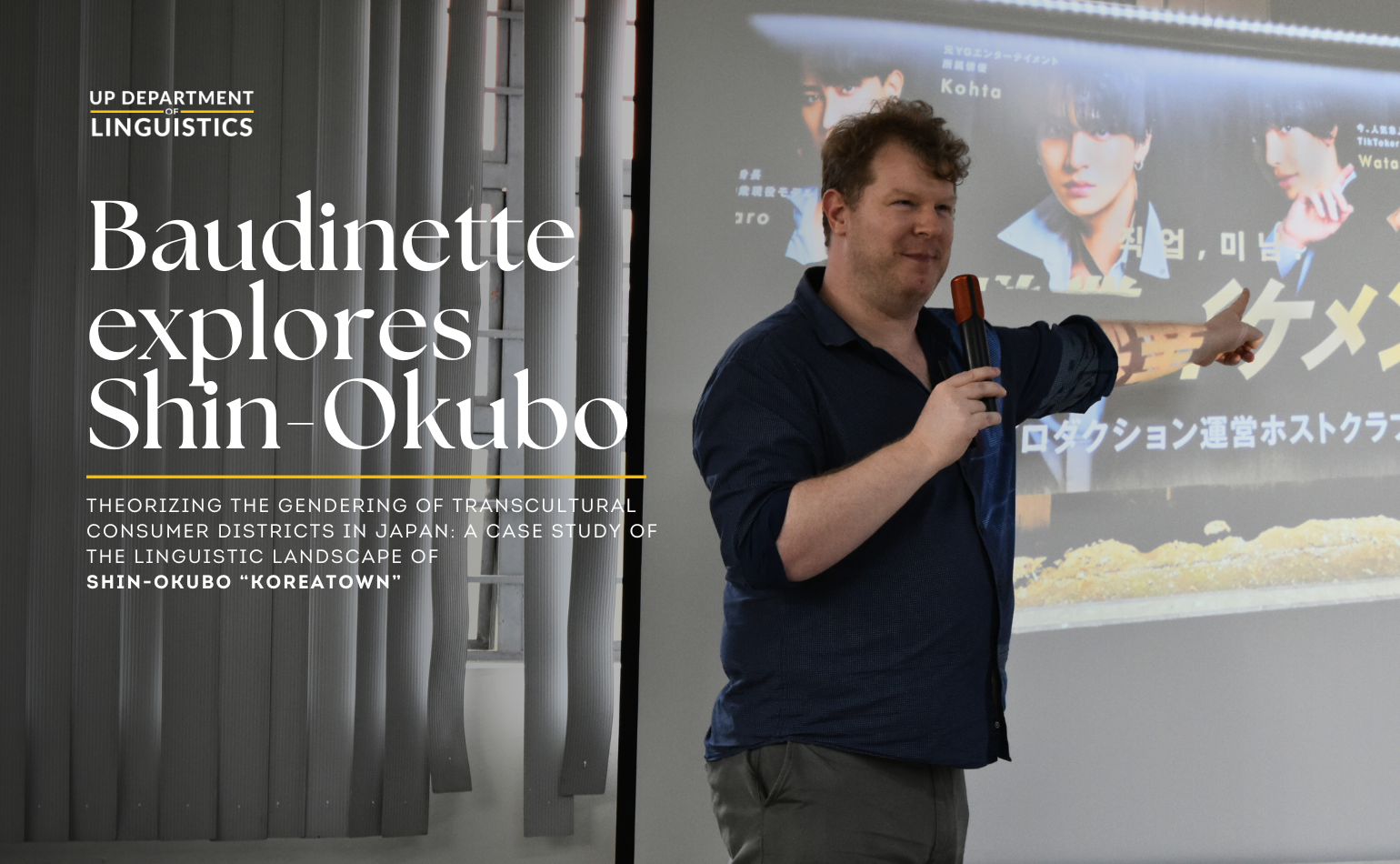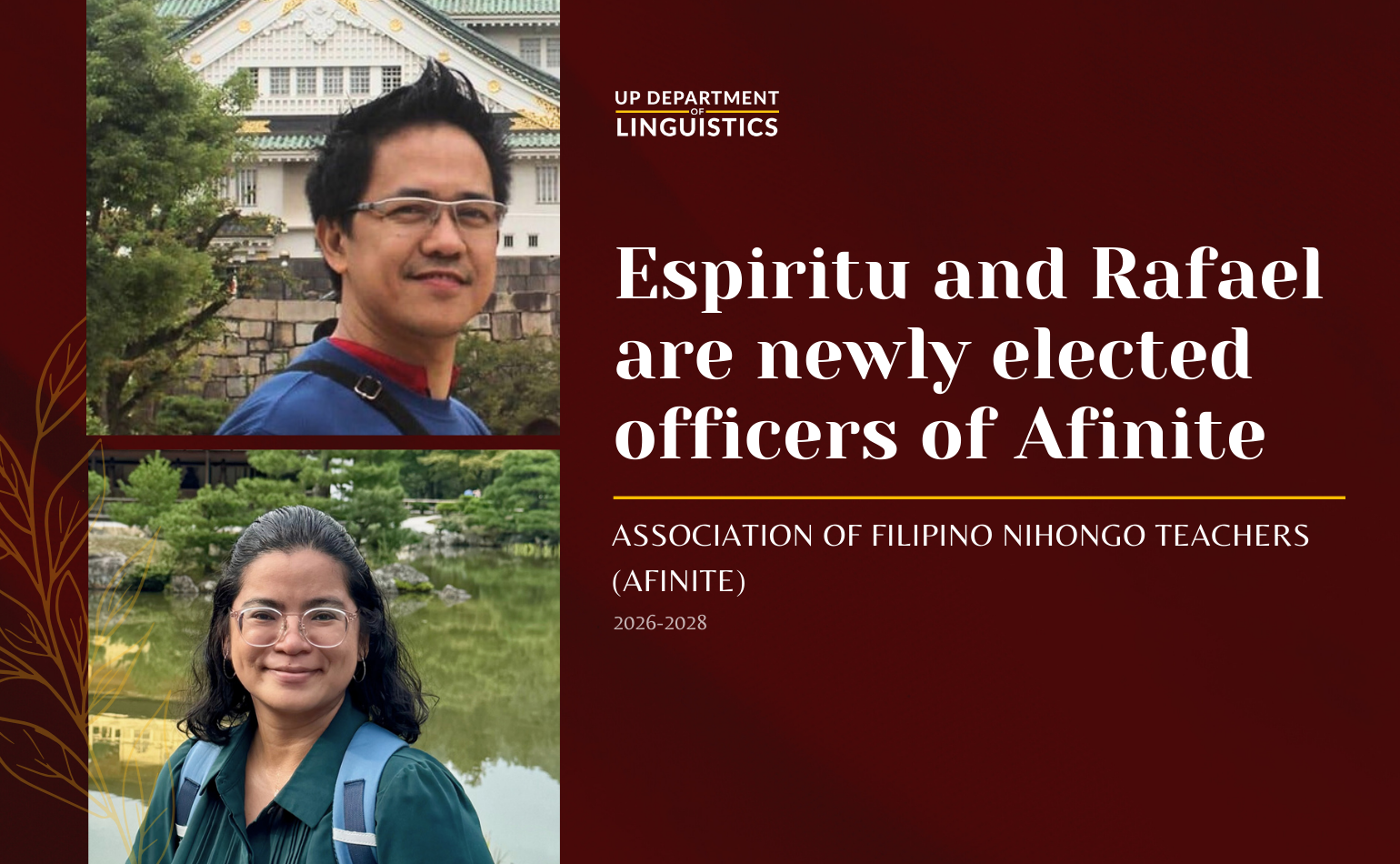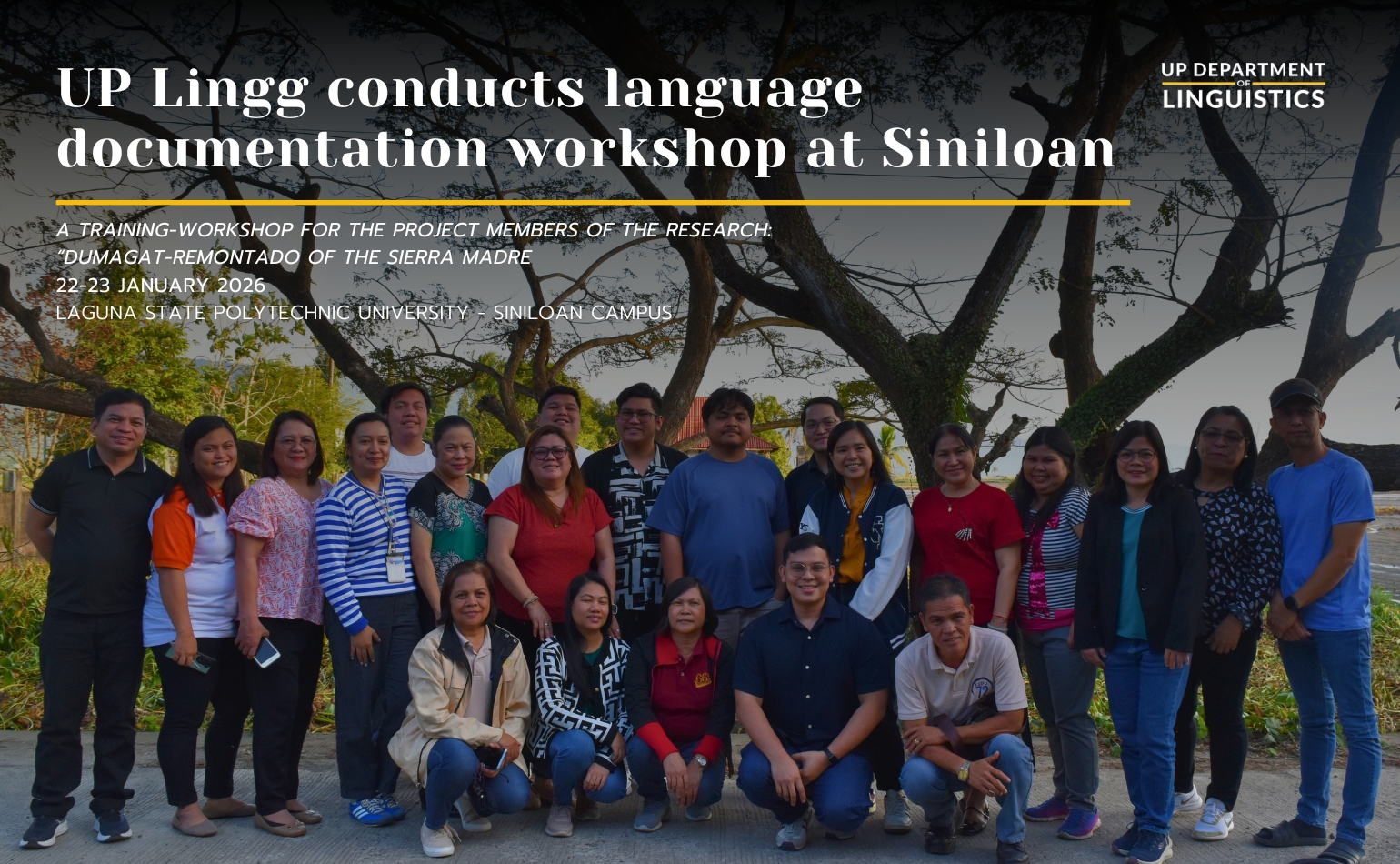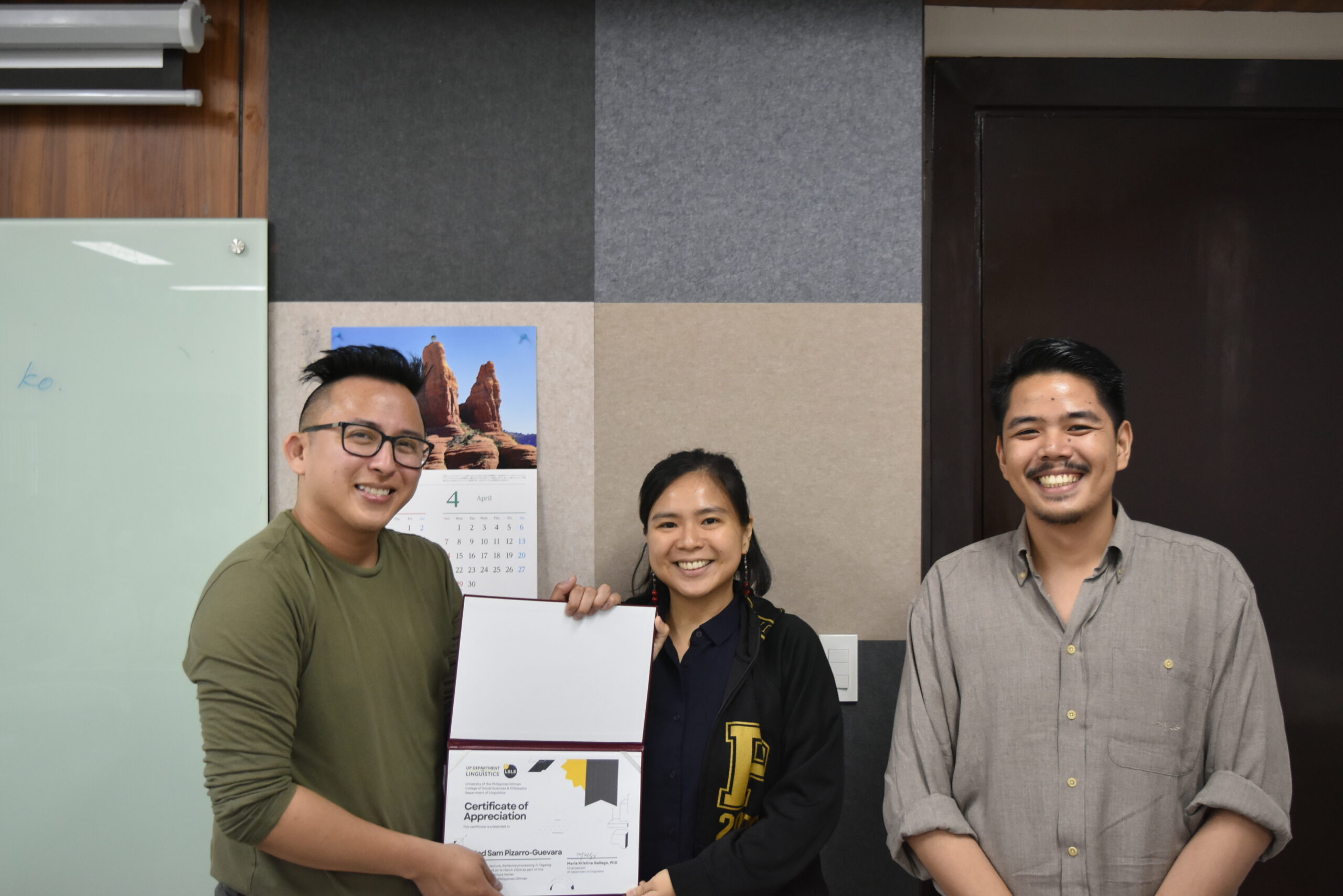
In this year’s first edition of the Linguistics Special Lecture Series (LSLS), Dr. Jed Sam Pizarro-Guevara, Postdoctoral Research Fellow at the University of Massachusetts – Amherst and also currently a visiting research fellow at the Department, explored psycholinguistics as a subfield outside of the Department’s research areas, and exposed students to the use of eyetrackers to conduct linguistic studies.
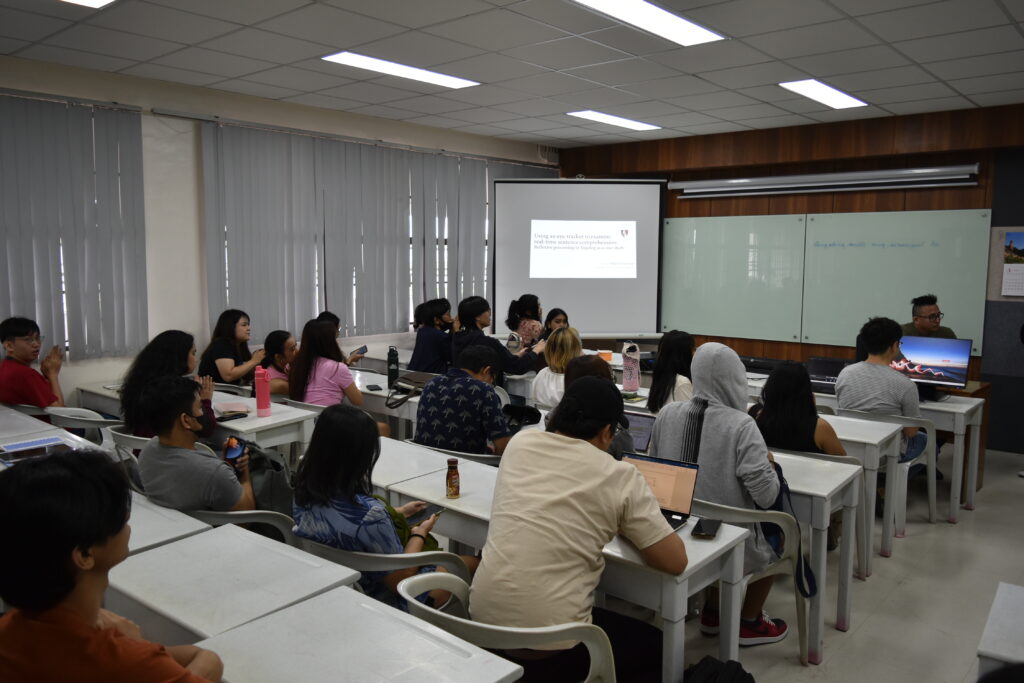
He discussed some research questions and methodology of his visual world study last August to September 2023, which was focused mostly on how reflexives are analyzed in the minds of native speakers. In the Government and Binding Theory of generative syntax, anaphora like reflexives and reciprocals must have a non c-commanding antecedent (the noun it is referring to) in the same clause. Therefore, in a sentence like Ikinuwento ni Anna sa akin na inilibre ni Bea ang sarili niya, the reflexive sarili niya has Bea as its antecedent.
However, the existence of other words sharing features like [+singular] and [+human] with both sarili niya and Bea could lead readers to hesitate on choosing the antecedent. Since Anna and akin are candidates, there could be a pause in choosing the antecedent, which the eyetracker study aims to document.
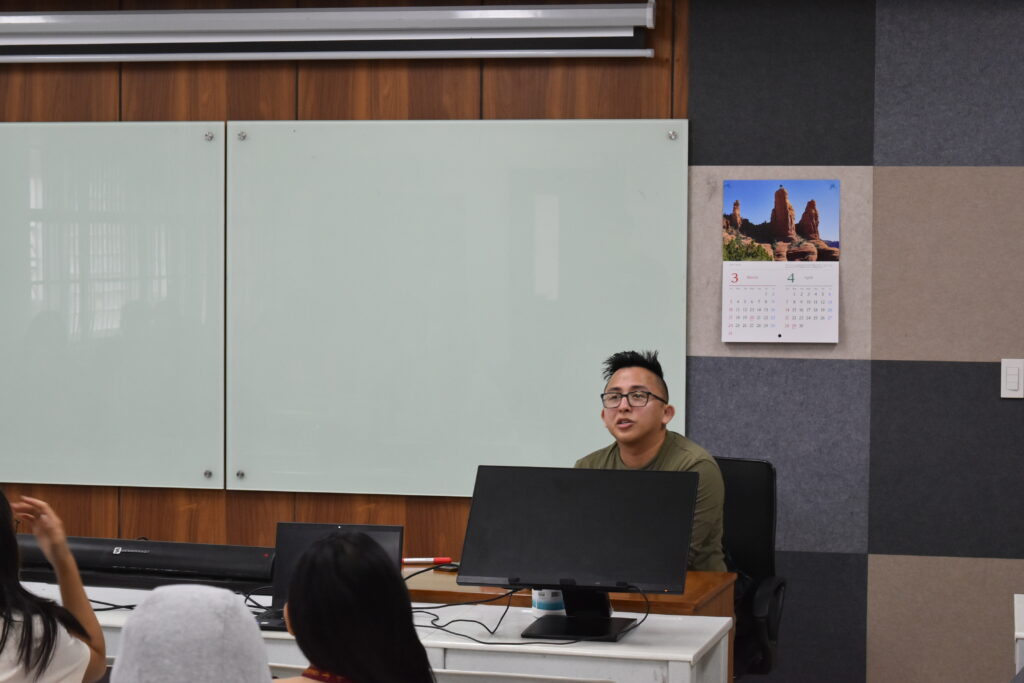
Results from this study can inform cue-based retrieval, a psycholinguistic model of how linguistic dependencies are formed.
After a quick open forum which tackled research methods and the observation that Tagalog is the most-studied Philippine language in psycholinguistics, Dr. Pizarro-Guevara proceeded to demonstrate how an eyetracker works and how its collected data inform claims in experimental linguistics.
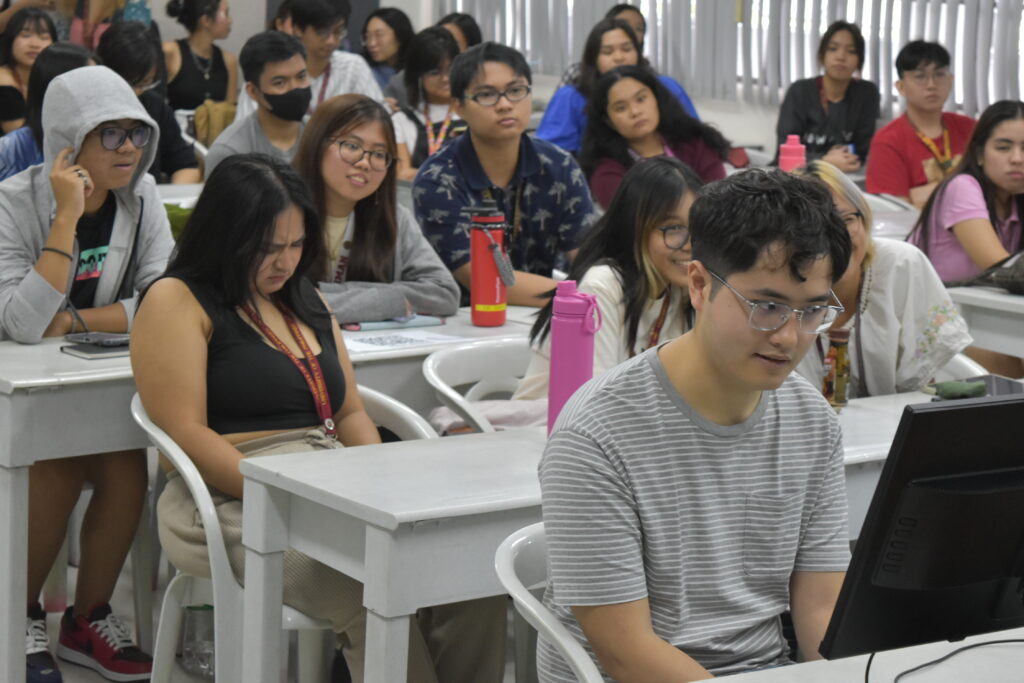
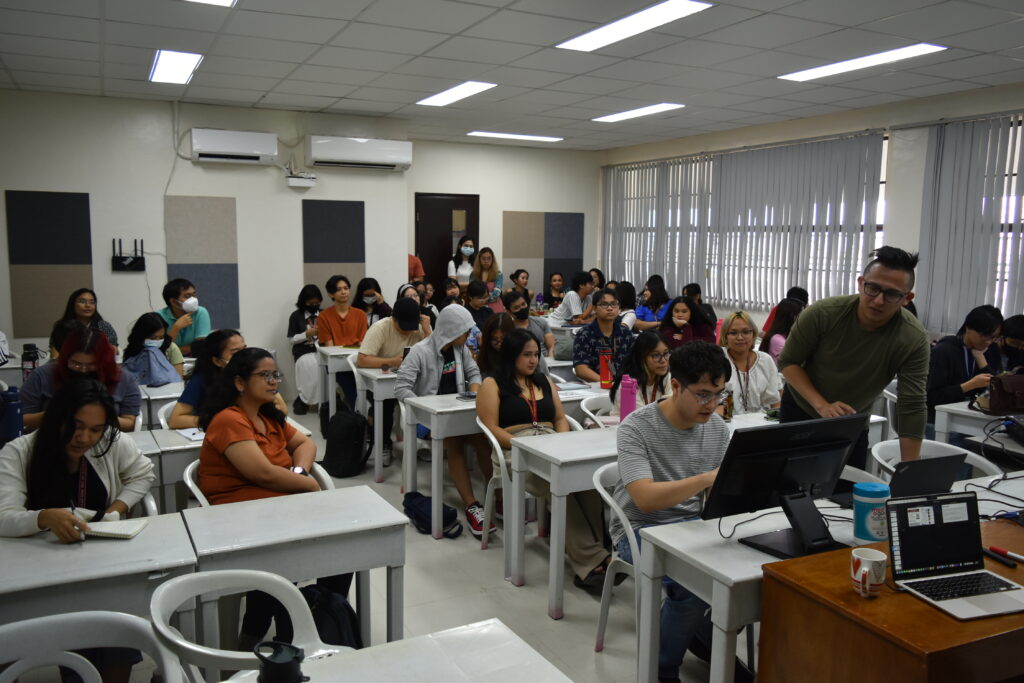
Students interested in the subfield can tune in on a webinar on Tagalog and its impact to both psycholinguistics and formal linguistics happening on 22 March at 11:00 PM PHT, or sign up for a separate face-to-face experiment scheduled from 18 to 22 March.
Published by UP Department of Linguistics

